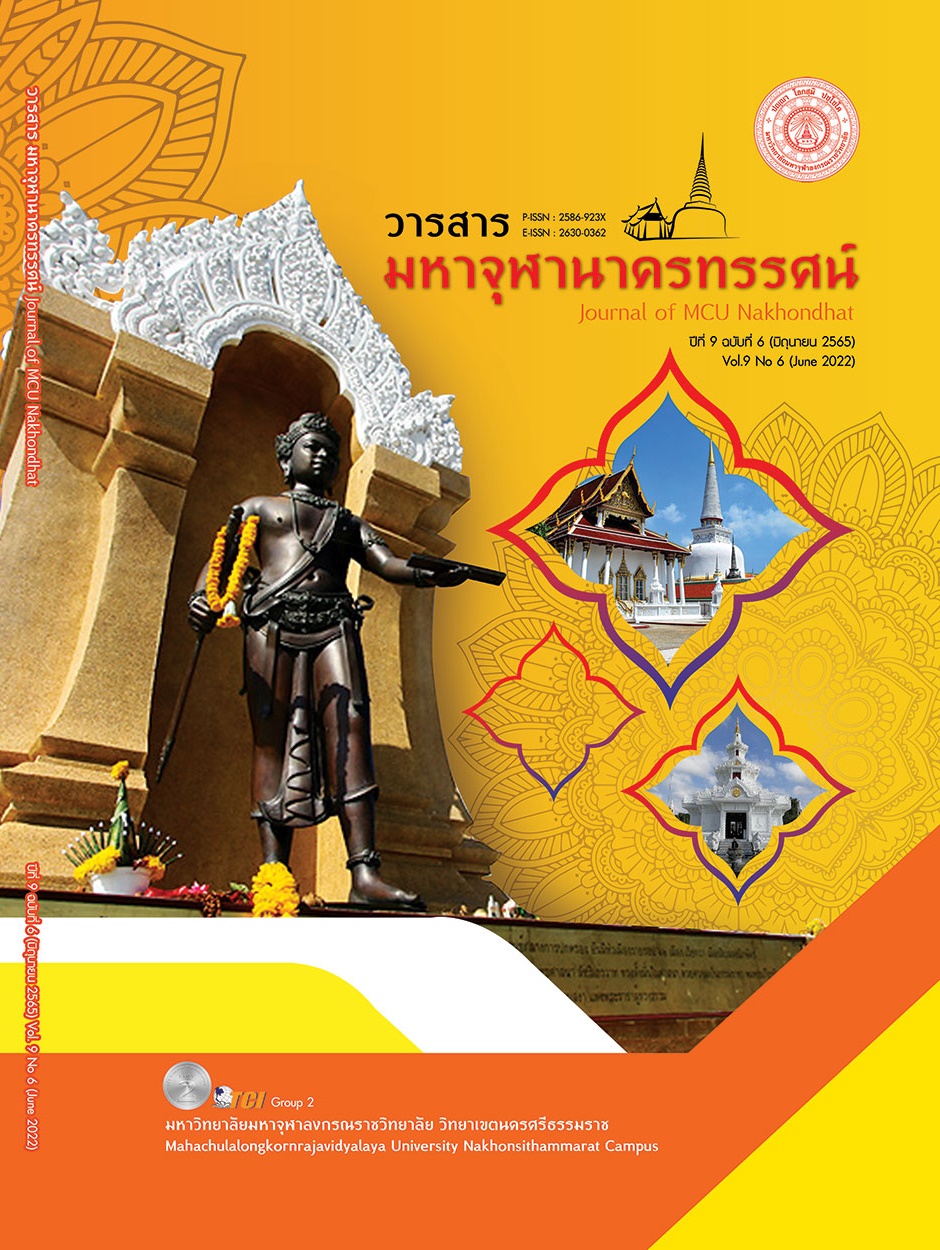EXPECTATIONS AND PERCEPTIONS OF VOCATIONAI TRAINING OF STUDENTS IN THE BACHELOR OF BUSINESS ADMINISTRATION PROGRAM RETAIL BUSINESS RAJABHAT UNIVERSITY IN THE SOUTHERN REGION
Main Article Content
Abstract
The objectives of this research paper were 1) to study personal factors affecting expectations and perceptions of professional practice experience. of students in the Bachelor of Business Administration program Retail Business Rajabhat University in the Southern Region and 2) to study the relationship between expectations and perceptions of professional experience training. of students in the Bachelor of Business Administration program Retail Business Rajabhat University in the Southern Region The sample group used in this research was students in year 1-4 studying in the Bachelor of Business Administration program. Retail Business Rajabhat University in the southern region, in the normal system, consisted of 181 people. The research instrument was a questionnaire and the statistics used for data analysis were percentage, mean, standard deviation. and correlation coefficient. Most of the respondents were female. The original domicile of the sample found that all of the original domiciles were in the southern region. Compensation to be received It was found that the highest compensation was 6,001-10,000 baht. Expectations and perceptions of students towards studying in the Bachelor of Business Administration program. Retail Business Rajabhat University in the southern region, in terms of expectations, it was found that the highest expectations were self development In terms of perception, it was found that the most perceived was knowledge and analysis of the relationship between expectations and perceptions of professional practice experience. of students in the Bachelor of Business Administration program Retail Business Rajabhat Universities in the Southern Region, the Sig values in each aspect were equal, which was 0.000, which was less than 0.01 correlation coefficient, knowledge, ability. personality experience and self-development values were close to 1, ie, the expectations and perceptions of the students' professional experience were related.
Article Details

This work is licensed under a Creative Commons Attribution-NonCommercial-NoDerivatives 4.0 International License.
References
โลเวลล์. (2564). แรงจูงใจ. เรียกใช้เมื่อ 8 มีนาคม 2564 จาก https://www.gotoknow.org /posts/617749.
กระทรวงศึกษาธิการ. (2560). กลยุทธ์การจัดการสถานศึกษาพอเพียงตามหลักปรัชญาของเศรษฐกิจพอเพียง (สถานศึกษาพอเพียง). กรุงเทพมหานคร: โรงพิมพ์ชุมนุมสหกรณ์การเกษตรแห่งประเทศไทย.
จันทร์เมธา ศรีรักษา และ เมทินี วงศ์ธราวัฒน์. (2560). ความคาดหวังและการรับรู้เกี่ยวกับการฝึกงานด้านธุรกิจการบิน: กรณีศึกษานิสิตหลักสูตรบริหารธุรกิจบัณฑิต สาขาวิชาการจัดการโรงแรมและท่องเที่ยว. ใน รายงานการวิจัย. มหาวิทยาลัยเกษตรศาสตร์.
ดนุชา สลีวงศ์ และณัตตยา เอี่ยมคง. (2560). การประยุกต์ใช้เทคโนโลยีสารสนเทศในการบริหารจัดการสินค้าชุมชนเพื่อความยั่งยืนทางเศรษฐกิจ. Veridian E-Journal,Silpakorn University ฉบับภาษาไทย สาขามนุษยศาสตร์สังคมศาสตร์ และศิลปะ, 10(3), 2355-2371.
ศิริวรรณ เสรีรัตน์. (2541). ส่วนประสมทางการตลาดสำหรับธุรกิจบริการ ( Marketing Mix '7Ps ). เรียกใช้เมื่อ 14 มีนาคม 2564 จาก http://thesisavenue.blogspot.com /2008/09/marketing-mix-7ps.html.
อดิศา เบญจรัตนานนท์. (2560). ความพึงพอใจของสถานประกอบการต่อนักศึกษาฝึกงานสาขาวิชาภาษาอังกฤษ คณะมนุษยศาสตร์และสังคมศาสตร์ มหาวิทยาลัยสงขลานครินทร์. วารสารวิทยบริการ มหาวิทยาลัยสงขลานครินทร์, 28(2), 184-194.
อรพรรณ ฤทธิ์มั่น และบัลลังก์ โลหิตเสถียร. (2561). บทบาทมหาลัยไทยต่อ Thailand 4.0. เรียกใช้เมื่อ 20 มีนาคม 2564 จาก http://www.moe.go.th/moe/th/news/ detail.php?NewsID=48419&Key= news_act.
Likert, R. (1967). The human organization. New York: McGraw - Hill.
Low, K.Y. (2004). The effects of industry specialization on audit risk assessments and audit-planning decisions. The Accounting Review, 79(1), 201-219.
Miller, L. A. et al. (2011). Foundations of psychological testing (3rd ed.). CA: SAGE: Thousand Oaks.


